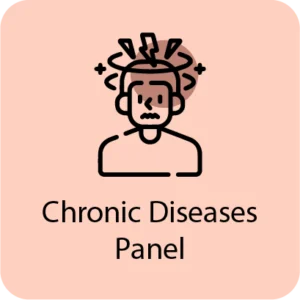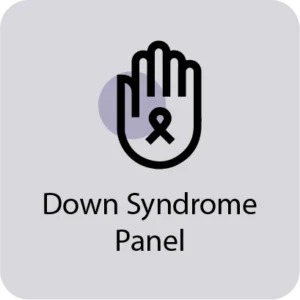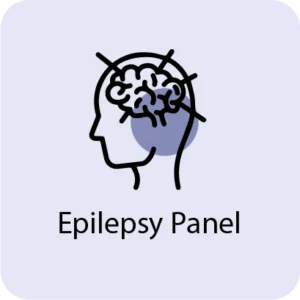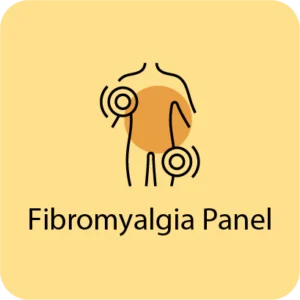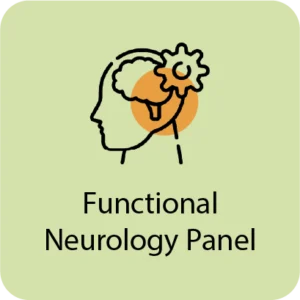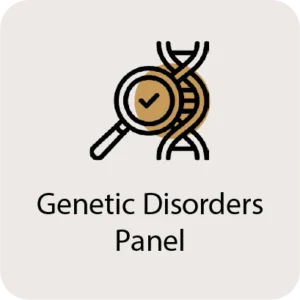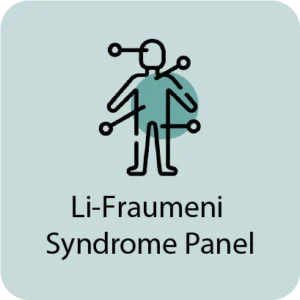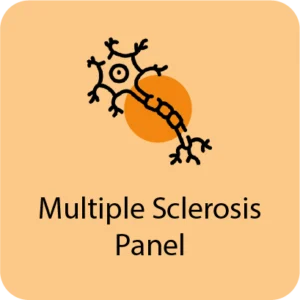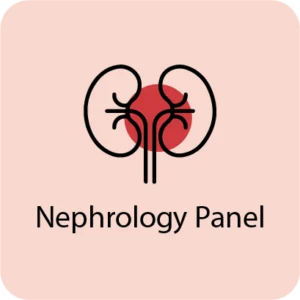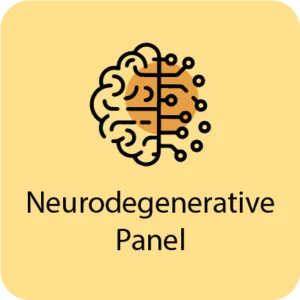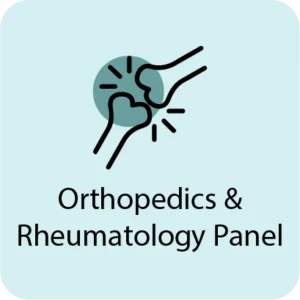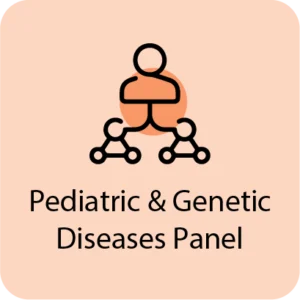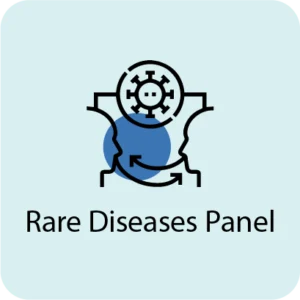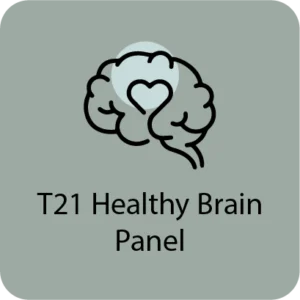Neurodegenerative
Neurodegenerative health encompasses a diverse array of conditions affecting the nervous system, which leads to progressive deterioration in cognitive and motor functions. Such an intricate web of diseases impacts various aspects of physiological and psychological well-being. It includes necessitating a comprehensive approach to management and care. Let’s delve into the multifaceted categories associated with neurodegenerative health:
Amino Acids:
Amino acids play crucial roles in neurotransmitter synthesis and brain function. Imbalances in amino acid levels might lead to neurodegenerative diseases. It highlights the importance of dietary interventions and supplementation to support brain health.
Imbalances in amino acid levels might well contribute to conditions like Parkinson’s disease, Alzheimer’s disease, and amyotrophic lateral sclerosis (ALS). For example, some of the alterations in glutamate metabolism have been implicated in the pathogenesis of Alzheimer’s disease.
Antioxidants / Supplements:
Antioxidants shall further combat some of the oxidative stress, which is a key factor in neurodegeneration. On supplementing with antioxidants it offers neuroprotective benefits and supports overall brain health.
Antioxidants, like vitamins C and E, coenzyme Q10, and resveratrol, have been studied for their potential neuroprotective which shall effect against conditions including Alzheimer’s disease, Parkinson’s disease, and multiple sclerosis.
Auditory System:
Some neurodegenerative diseases impact the auditory system. This leads to hearing loss and other auditory symptoms. Further, understanding and addressing some of these challenges is well essential for comprehensive care.
Neurodegenerative diseases including Alzheimer’s disease and Parkinson’s disease lead to auditory processing deficits and hearing loss, which impacts communication and quality of life.
Behavioral Alterations:
Neurodegenerative diseases usually manifest with behavioral alterations. They include mood disturbances, agitation, and apathy. Managing such behavioral symptoms needs a multidisciplinary approach involving medications, psychotherapy, and supportive interventions.
Conditions including frontotemporal dementia and Huntington’s disease are well characterized by significant behavioral changes, like apathy, agitation, disinhibition, and impulsivity.
Cancer:
Soneurodegenerative diseases, like Parkinson’s disease, have been well-associated with an enhanced risk of cancer. Understanding the complex interplay between these issues is well vital for holistic patient care.
Glioblastoma multiforme and neuroblastoma, are well associated with an enhanced risk of cancer due to shared genetic and environmental factors.
Cardiovascular:
Some of the Neurodegenerative diseases can impact cardiovascular health. The increased risk of conditions including heart disease and stroke. Comprehensive management shall also address both neurological and cardiovascular aspects for optimizing patient outcomes.
Cardiovascular and Cerebrovascular:
Some of the connection that lies between cardiovascular and cerebrovascular health is well evident in neurodegenerative diseases. Strategies for promoting some of the vascular health are well essential for preventing cognitive decline and stroke.
Transient Ischemic Attack (TIA), Stroke, and cerebral small vessel disease are known to be some of the common cerebrovascular complications. They are observed in neurodegenerative diseases like Alzheimer’s disease and vascular dementia.
Digestive System:
Neurodegenerative conditions can affect the digestive system, which leads to symptoms like dysphagia and gastrointestinal dysfunction. Further to address some of the conditions shall need dietary modifications, medications, and supportive therapies.
Autonomic dysfunction is known to be a condition like Parkinson’s disease and multiple system atrophy. They can all lead to gastrointestinal symptoms like dysphagia, constipation, and gastroparesis.
Fatty Acids:
Omega-3 fatty acids are known for playing a crucial role in brain health. They might have neuroprotective effects. Some might be about Incorporating foods rich in omega-3s or supplementing with fish oil that can support cognitive function and lower the risk of neurodegenerative diseases.
Dysregulation of fatty acid metabolism might have been well implicated in the pathogenesis of neurodegenerative diseases including Alzheimer’s disease and Huntington’s disease.
Genetic Diseases:
Many of those neurodegenerative diseases have a genetic component, highlighting the importance of genetic testing and counseling for at-risk individuals.
Hereditary neurodegenerative diseases like Huntington’s disease, amyotrophic lateral sclerosis (ALS), and some forms of Parkinson’s condition lead to mutations in specific genes.
Hereditary Diseases:
Hereditary factors play a significant role in neurodegenerative diseases including Huntington’s disease and familial Alzheimer’s disease. Understanding those genetic predispositions is essential for early detection and intervention.
Genetic mutations associated with hereditary neurodegenerative diseases can lead to progressive neurological dysfunction and cognitive decline.
Immune System:
Dysregulation of the immune system can contribute to neuroinflammation and neuronal damage in some of the neurodegenerative diseases. Modulating immune responses through medications or lifestyle interventions might all help in slowing disease progression.
Neuroinflammation is known to be a common feature of many neurodegenerative diseases. Some of them include Alzheimer’s disease, Parkinson’s disease, and multiple sclerosis, where dysregulated immune responses contribute to neuronal damage.
Inflammation:
Neuroinflammation is a hallmark of numerous diseases. They shall all contribute to neuronal dysfunction and degeneration. Targeting inflammatory pathways might offer therapeutic benefits in managing such conditions.
Chronic inflammation in the central nervous system is a hallmark of neurodegenerative diseases and is believed to exacerbate neuronal dysfunction and degeneration.
Metabolic:
Metabolic dysfunction is increasingly recognized as a contributing factor in neurodegenerative diseases like Alzheimer’s disease. Lifestyle interventions that promote metabolic health, such as regular exercise and a balanced diet, may help mitigate disease risk.
Metabolic Disorders:
Conditions like diabetes and metabolic syndrome are associated with an increased risk of neurodegenerative diseases. Managing metabolic disorders is essential for preserving brain health and preventing cognitive decline.
Muscular System:
Some neurodegenerative diseases shall affect the muscular system. It shall lead to weakness, atrophy, and mobility issues. Physical therapy and exercise can help maintain muscle strength and function in affected individuals.
Conditions like amyotrophic lateral sclerosis (ALS) and spinal muscular atrophy (SMA). It leads to progressive muscle weakness, atrophy, and paralysis due to motor neuron degeneration.
Need for Nutrients:
Adequate nutrition is essential for supporting brain health and mitigating the progression of neurodegenerative diseases. This shall ensure sufficient consumption of nutrients including vitamins, minerals, and antioxidants are crucial for optimal neurological function.
Adequate consumption of nutrients like vitamins, minerals, and omega-3 fatty acids is crucial for maintaining brain health and reducing the risk of neurodegenerative diseases.
Neurodegenerative Diseases:
Neurodegenerative diseases encompass a broad spectrum of conditions like Alzheimer’s disease, Parkinson’s disease, Huntington’s disease, and amyotrophic lateral sclerosis (ALS). Each of these conditions presents unique challenges and requires tailored management strategies.
Neurological:
Neurological symptoms are well common in some neurodegenerative diseases and they might include cognitive impairment, sensory deficits, motor dysfunction, and autonomic dysfunction. Comprehensive neurological evaluation is well essential for accurate diagnosis and treatment planning.
Personal Characteristics:
Individual characteristics, like gender, age, genetics, and lifestyle factors, some of these influence the risk and progression of neurodegenerative diseases. Other Personalized approaches while taking care of such accounts under some unique attributes help in optimizing treatment outcomes.
Psychiatric:
Psychiatric symptoms including anxiety, depression, and psychosis frequently coexist with neurodegenerative diseases. They significantly impact the quality of life. Integrating psychiatric care into treatment plans is essential for addressing these comorbidities effectively.
Sleep:
Sleep disturbances like this condition are common in neurodegenerative diseases. It can exacerbate cognitive and mood symptoms. Strategies to improve sleep hygiene and address underlying sleep disorders are integral components of disease management.
Vitamins:
Certain vitamins, like vitamin D, vitamin B12, and folate, play essential roles in brain health and they might influence the risk of such conditions. Monitoring vitamin levels and supplementing as needed can support neurological function and overall well-being.
LifeCode Neurodegenerative
At our healthcare facility, we specialize in providing comprehensive support and assistance for individuals who face neurodegenerative health challenges. They might also face issues encompassing brain health, cardiac health, and mental health.
Our dedicated team of healthcare professionals is committed to addressing the unique needs and concerns associated with such areas, employing evidence-based approaches while promoting optimal well-being and quality of life.
BRAIN HEALTH:
Maintaining some of the optimal brain health is needed for cognitive function, memory retention, and overall quality of life.
Our services have all focused on preserving brain health through personalized assessments and interventions tailored to each individual’s needs.
One shall offer neurocognitive evaluations, brain imaging studies, and other lifestyle counseling to promote brain health. It lowers the risk of neurodegenerative diseases like Alzheimer’s disease and dementia.
Our team shall work closely with patients to develop personalized strategies for boosting the brain’s health through cognitive stimulation. Physical activity, healthy nutrition, and stress management techniques.
CARDIAC HEALTH:
Cardiovascular health plays a critical role in overall well-being, especially in individuals with neurodegenerative conditions. Our healthcare providers offer comprehensive cardiac assessments and interventions to optimize cardiovascular health.
It shall lower the risk of cardiovascular complications that are well associated with such diseases. We provide cardiac screenings, diagnostic tests, and lifestyle counseling while promoting heart health and preventing cardiovascular diseases like heart attack, stroke, and hypertension.
Our integrated approach focuses on managing risk factors such as high blood pressure, high cholesterol, diabetes, and obesity to support cardiac health and improve overall outcomes.
MENTAL HEALTH:
Mental health is well closely linked to such health conditions and significantly impacts patient well-being and quality of life.
Our mental health services are greatly designed to address the emotional, psychological, and psychiatric needs of individuals who are well affected by neurodegenerative diseases.
We do offer counseling, therapy, and support groups to help patients cope with the challenges of their condition, manage stress and anxiety, and maintain emotional resilience.
Our team of mental health professionals provides compassionate care and evidence-based interventions to promote mental wellness and improve overall quality of life.
Our Approach to Neurodegenerative Health:
As healthcare providers, we are also committed to providing comprehensive care and support to individuals who are affected by neurodegenerative diseases.
Our approach completely focuses on some of the following key principles:
-
Early Detection and Diagnosis:
We prioritize early detection and accurate diagnosis which is done through clinical assessments, genetic testing, and some of the advanced imaging techniques.
Other early interventions can help slow disease progression and improve outcomes.
-
Multidisciplinary Care:
We do believe in a multidisciplinary approach to care. This involves neurologists, psychiatrists, psychologists, occupational therapists, physical therapists, and other similar healthcare professionals.
Such a team-based approach that all aspects of the patient’s physical, cognitive, and emotional well-being are addressed.
-
Symptom Management and Supportive Care:
We tend to provide personalized treatment plans that are well-tailored to each patient’s unique needs and symptoms.
Such plans include medication management, counseling, rehabilitation therapy, and palliative care for alleviating such symptoms and it can help in improving quality of life.
-
Patient and Family Education:
Empowering patients and their families with knowledge, resources, and support is our forte. Such acts can help in understanding the disease process, it help in managing symptoms. On the other hand, it also helps in navigating the challenges of living with a neurodegenerative condition.
-
Research and Innovation:
We are well committed to some of the advancing knowledge and several treatment options for this condition as a whole. This is one through ongoing research, clinical trials, and collaboration with great leading experts in the field.
Our main goal is to continuously improve outcomes and develop new therapies. This shall help to enhance the lives of individuals affected by these challenging conditions.
-
Community Engagement and Support:
We do recognize the importance of community resources and other support networks concerning individuals and families affected.
Thus, we facilitate connections to local support groups, several educational programs, and advocacy organizations for fostering a sense of belonging, lowering isolation, and promoting empowerment.
-
Holistic Wellness Approach:
In addition to medical interventions, we also emphasize the importance of holistic wellness strategies that help support overall health and well-being.
Such things include nutrition counseling, exercise programs, stress management techniques, and complementary therapies such as acupuncture or massage therapy.
-
Advance Care Planning:
We assist patients and their families with all those advanced care planning. It includes discussions about end-of-life preferences, some of the palliative care options, and other advance directives.
Our main goal is to ensure that patients receive care that aligns with their values, wishes, and goals, even as their condition progresses.
-
Continuous Monitoring and Adjustments:
The condition is well progressive, and some of the treatment plans might need to be adjusted over time to address changing symptoms and needs.
We do provide ongoing monitoring, some regular assessments, and other proactive adjustments concerning the treatment plans. This in combination shall help in optimizing outcomes and quality of life.
-
Educational Resources and Research Opportunities:
Our educational resources and opportunities for patients and their families help them to be informed about the latest advancements in this research, treatment options, and supportive care services.
We encourage participation in all those clinical trials and research studies. Such advancement of knowledge helps in improving future treatment options.
As a healthcare provider, we specialize in neurodegenerative health. We are also committed to delivering personalized and holistic care to individuals facing these complex challenges.
Our multidisciplinary approach integrates brain health, cardiac health, and mental health services. This helps in providing some of the comprehensive support and assistance tailored to each individual’s unique needs.
With our expertise and dedication, we empower patients to navigate their health journey with complete confidence and resilience. This in all promoted optimal well-being and quality of life.
| Categories | Conditions Observed |
|---|---|
Amino acids | L-arginine |
| Serine Deficiency |
|
|
Antioxidants / Supplements | Coenzyme Q10 |
| Retinoic Acid |
|
|
Auditory system | Otosclerosis |
|
|
Behavioral Changes | Aggressiveness |
|
|
Cancer | Glioma |
| Neuroblastoma |
|
|
Cardiovascular | Atherosclerosis (early in children) |
| Atherosclerosis (hyperlipidemia) |
| Brain aneurysm |
|
|
Cardiovascular and Cerebrovascular | Nitric Oxide |
| Stroke |
|
|
Digestive system | Peroxisomal Enzyme Deficiency |
|
|
Fatty acids | Omega 3 |
|
|
Genetic diseases | Familial Amyloidotic Polyneuropathy (FAP) |
| Familial Dysautonomy (Riley-Day Syndrome) |
| Metachromatic leukodystrophy |
| Mucopolysaccharidosis Type IIIB |
| Pseudo Arisulfatase A Deficiency |
| Salla’s disease |
| Wilson’s Disease |
| Zellweger Syndrome |
|
|
Hematologic system | Argininemia |
| Creatinophosphokinase |
| Neuroferritinopathy |
|
|
Hereditary diseases | Friedreich’s Ataxia |
|
|
Immune system | Guillain-Barré Syndrome |
| Neurofibromatosis |
| Neurosarcoidosis |
|
|
Inflammations | C-reactive protein |
|
|
Metabolic | Mitochondrial Complex Deficiency 1 |
|
|
Metabolic disorders | Thiamine 4 Metabolism Dysfunction Syndrome |
|
|
Muscular system | Hemiplegia |
| Leigh’s Syndrome |
|
|
Need for Nutrients | Apigenin need |
| Choline |
| Reaction to Glutamate |
| Turmeric (Curcumin) |
| Uridine Monophosphate |
|
|
Neurodegenerative diseases | Alzheimer’s disease |
| Alzheimer’s disease (early) |
| Amyotrophic Lateral Sclerosis (ALS) |
| Canavan disease |
| Cerebral Amyloid Angiopathy |
| Charcot-Marie Disease |
| Creutzfeldt-Jakob Disease |
| Delay of Alzheimer’s Disease in 10 years |
| Diffuse Mesangial Sclerosis |
| Ethylmalonic Encephalopathy |
| Frontotemporal Lobar Degeneration |
| Glutaric Acidemia |
| Hereditary Sensory Neuropathy |
| Huntington’s Disease |
| Louis-Bar Syndrome (Ataxia Telangiectasia) |
| Mental and Cognitive Decline (Age) |
| Molybdenum Cofactor Deficiency |
| Motor Neuropathy |
| Mucopolysaccharidosis Type IIIA |
| Multiple sclerosis |
| Neuronal Ceroid Lipofuscinosis Type 2 |
| Parkinson’s disease |
| Peripheral neuropathy |
| Pick’s Disease |
| Primary Progressive Aphasia |
| Progressive Supranuclear Palsy |
| Spinocerebellar Ataxia |
| Systemic Sclerosis |
| Tay-Sachs disease |
| Torsional dystonia |
| Vascular dementia (in elderly) |
| Wolfram Syndrome-1 |
|
|
Neurological | BDNF |
| Dopamine Receptors |
| Dopamine Synthesis |
| Dopamine conversion |
| Dopamine degradation |
| Dopamine transporters |
| GLUT1 Deficiency Syndrome |
| Increased Risk of Alzheimer’s in Diabetics (T2) |
| Mental decline with age |
| Serotonin Receptors |
| Serotonin Synthesis |
| Serotonin Transporters |
| Serotonin degradation |
|
|
Personal characteristics | Cognitive Flexibility |
| Hypothalamus Size (Smaller GG) |
| Pineal Hyperplasia |
| Visuospatial Working Memory |
|
|
Psychiatric | Early Wake Up Time |
| Schizophrenia |
|
|
Sleep | Time to sleep later |
|
|
Vitamins | Folate |
| Vitamin B3 (Niacin) |
How does genetics play a role in neurodegenerative diseases?
Genetics can play a significant role in neurodegenerative diseases, as certain genetic mutations or variations can increase an individual’s risk of developing these conditions. In some cases, neurodegenerative diseases may have a hereditary component.
What are some common neurodegenerative diseases?
Common neurodegenerative diseases include Alzheimer’s disease, Parkinson’s disease, Huntington’s disease, amyotrophic lateral sclerosis (ALS), frontotemporal dementia (FTD), and multiple sclerosis (MS).
What is genetic testing for neurodegenerative diseases, and how does it work?
Genetic testing for neurodegenerative diseases involves analyzing an individual’s DNA to identify specific genetic variations associated with increased susceptibility to these conditions. This analysis can help assess an individual’s risk and guide preventive measures or treatment decisions.
Who should consider undergoing genetic testing for neurodegenerative diseases?
Individuals with a family history of neurodegenerative diseases or those experiencing early-onset symptoms suggestive of these conditions may consider genetic testing to assess their risk and inform medical management.
What specific genetic markers or genes does the genetic testing panel for neurodegenerative diseases analyze?
The genetic testing panel for neurodegenerative diseases may analyze genes associated with each specific condition. It includes APP, PSEN1, and PSEN2 for Alzheimer’s disease, SNCA and LRRK2 for Parkinson’s disease, and HTT for Huntington’s disease.
















